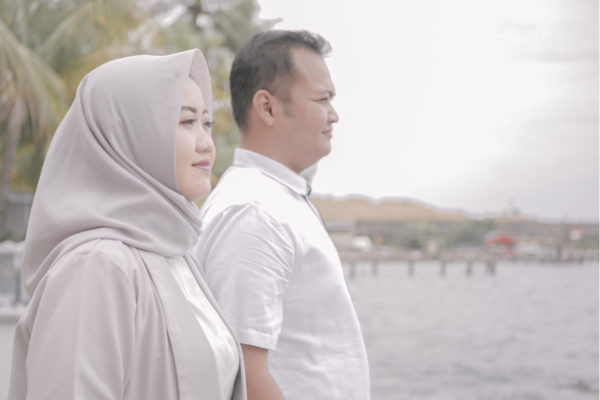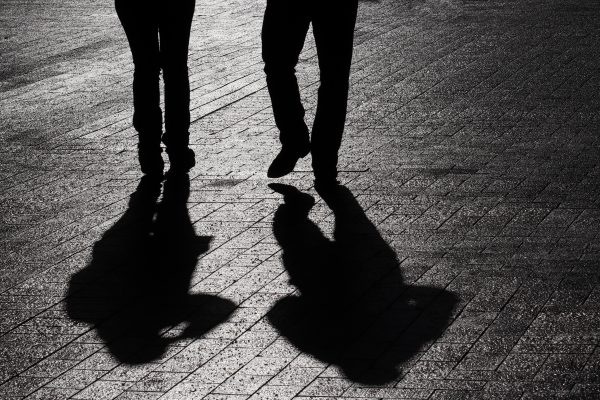There is a serious underreporting of domestic and sexual abuse within general society, but this underreporting more so exists within the Muslim community.
There is a serious underreporting of domestic and sexual abuse within general society, but this underreporting more so exists within the Muslim community.
There is a serious underreporting of domestic and sexual abuse within general society, and this underreporting exists more so in the Muslim community. Some of the factors that may contribute to the hesitancy by victims to report their abuse include fear of reprisal, bringing shame on the family honour, not knowing who to talk to confidence, and worst of all – not being believed. The result of this is that many victims suffer in silence, internalising self-blame with serious mental health repercussions and unfortunately, outlets may manifest through self-harm, self-isolation and detachment from faith.
Prevention
In our search for solutions, we have to start by acknowledging and taking ownership of the problem as a community. Sadly, we find that there is very little acceptance of the fact that issues of domestic and sexual violence exist in our community. Where cases of abuse come to surface, quite often there is a denial. As a community, this prevents us from putting in place both preventative measures and practical support for victims. For us, this is a particular concern as the Muslim community is not short of community-based structures, for example, mosques, community centres and other networks and forums, and neither are not short of financial resources given that the community generates several hundred million pounds in charity by UK donors for community projects. Therefore it is apparent that these resources are not being properly directed to needs of this type.
Our own work with Muslim women prisoners and women fleeing domestic violence, abuse, sexual and “honour” related crimes strongly indicates that violence is generally perpetrated by male members of the family, which is rooted in patriarchal norms that continue to fester within family and community life. We have also discovered that in families where domestic violence and sexual violence is happening there is a tendency for other members of the family, particularly parents and in-laws, to enforce a ‘conspiracy of silence’ on the account of protecting the family honour and avoiding shame. In many cases, mothers-in-law are actually encouraging this behaviour, advising their sons to mentally, physically and financially abuse their wives in a bid to “keep them in check”.
We have also found that many of the mainstream agencies don’t really appreciate and understand the extent of the problem. They often don’t have the understanding of the cultural ‘pull and push factors’, and frontline staff do not have the necessary knowledge and skills to deal with what is often complex family and cultural scenarios around the victims. Perhaps in some respects, they are fearful of making a wrong move and upsetting a complex minority community. Racism and Islamophobia can also make it difficult for victims to access appropriate support. They are left feeling marginalised and abandoned. Victims also face educational issues – some of the beneficiaries we support are not originally from the UK and have very little knowledge on the UK legal system and of what services are available to them, causing an additional barrier to support.
What is required is a fundamental shift in our understanding and approach to the whole notion of domestic and sexual abuse, and the location and positioning of women in our society. Adopting the position of an ostrich with its head in the sand on this and other similar issues will only exacerbate the problem. Community structures – that is community centres, mosques etc., need to rethink their roles and responsibilities and redesign their facilities and services to accommodate and include the needs and voice of women, in particular, the needs and voices of ‘victims’.
Of course, this will entail a rethinking of how we design and deliver facilities and services, and whether these are inclusive of difficult and sensitive issues around which there is an advertent or inadvertent conspiracy of silence. There is also evidence pointing towards the fact that children who have grown up in abusive households grow up detesting Islam, or worse, leaving the religion altogether due to making a negative connection between Islam and abuse, which is usually rooted in cultural norms and not from the religion at all. Psychological implications on children can be just as detrimental to them as it can be on their mothers, and this again is an area of concern that communities need to take on board.
On a practical level, we need to create a culture of acceptability within frontline organisations so that victims feel comfortable coming forward. This may mean having trained frontline female staff/volunteers to provide practical support around domestic violence and abuse. This would involve re-prioritising how we use our resources both financial and otherwise. Do we have adequate provision for Muslim victims and enough helplines? Unfortunately, continued cuts in funding for projects and refuges supporting victims nationally puts additional pressure on organisations offering this service. This is especially for organisations that are culturally aware and sensitive to Muslim women and their particular needs.
Equally important is our engagement with mainstream providers of support for victims of violence and abuse. We have discovered that there is minimal engagement with these service providers by our community. As a community we have to enable these providers to be inclusive of the needs of Muslim women and help to build their capacity, remembering that many have serious reservations of approaching structures within our own community for help and support on the grounds of confidentiality and who else may end up knowing their plight.
We have to accept that overwhelmingly, the perpetrators of violence and sexual abuse in our communities are men. There is a gross reluctance to admit this or for other men to challenge this. There is a dire need to begin to challenge norms and values which prevent us from questioning. There is also widespread confusion around faith teaching and cultural norms around the place and position of women in our community. Whereas our faith assigns a position of equal respectability of both men and women, often cultures and social norms denigrate a women’s position to that of being subservient to men, and hence violence and abuse are used to impress on her ‘assigned’ status. There is a need for us to dissect our faith values from the toxic culture and norms, which seem to have overwhelming control over our outlook and ways of life.
We need to correct this imbalance. Our faith and civic leadership can no longer shy away from this and must be prepared to take on this challenge and the community to affirm and reform our morality.
Advice to victims
- Recognising signs of abuse is fundamental to speaking out on it. Most individuals at some point will experience ups and downs in their relationship, but to know when that relationship is abusive, you should be looking at how the behaviour of your partner or abuser makes you feel – if you feel you are controlled, intimidated, oppressed, unable to speak out, that is abuse.
- Leaving an abusive partner or home is an extremely daunting prospect, teamed with cultural pressures and in many cases, not having knowledge of support available at times, can seem to be an impossible task. Barriers such as finances, lack of family or social support, safety, guilt, shame, religious/cultural beliefs and an unsecured immigration status are all factors that come in to play when a woman contemplates leaving an abusive relationship. More than anything, it takes a lot of courage to leave. A plan and timing in many cases are crucial. However, it is important to remember the role of professional support in leaving. Domestic abuse support workers, housing officials, advocacy agencies, the police and health professionals can all be contacted about the abuse you are suffering and can make appropriate referrals and recommendations to the relevant services to allow you to access the support you require.
- From our experience supporting victims of domestic abuse/violence and all that encompasses, we know that it won’t suddenly become easier once you leave, but recognising you need to distance yourself from your abuser is the first step in improved psychological and physical wellbeing. Teamed with the support of professionals, victims’ situations are improved over time. In our case, once the client is moved to a refuge/supported accommodation, we would then put together a support plan looking at all the areas of support required, including financial, housing-related, children, immigration, legal support, injunctions, counselling, one-to-one support, education and gaining the relevant skills to be able to live safely and independently once no longer living under the accommodation of a refuge.
You have the right to live without fear of abuse and violence and your safety and the safety of your children is paramount.
Below are two case studies of clients that we have supported.
Case study 1
An example of a case EHUK have supported is the story of a 22-year-old African non-UK national who was suffering at the hands of extreme physical, financial and emotional abuse at the hand of her husband, while also having a critically ill child to look after. This client was extremely vulnerable and had no family or social network in the UK. Her husband had attempted to attack her with a knife just weeks after giving birth and while still healing from a caesarean operation. It was at this point that police and social services made a referral for safe and secure accommodation. Her son was diagnosed with down syndrome as well as other complications affecting the functioning of his heart, lungs amongst other health concerns. The child’s father would never visit their son in the hospital, leaving her to attend all appointments and hospital visits for the multiple operations he had to undergo. After 10 months of her son being born and battling with constant health problems, he passed away. This was understandably an extremely tragic and tough time for her.
The client had access to emotional and practical support at our refuge, including support in financial, housing, immigration and welfare areas, as well as funeral plans when her son had passed away. After a period of 11 months, she was resettled into her own property and relevant support referrals were made to bereavement services. She had also started part-time educational and English classes and began to socialise more, and was supported with her son’s funeral.
“I was supported throughout everything I went through, I am now able to live independently and taking English classes which is helping me increase my confidence and chances of finding of work.”
Case Study 2
MWIP supported a 20-year-old South Asian UK-born client who was extremely vulnerable and actively exhibiting self-harm. She had no contact from family or friends and was still dealing with emotional and mental distress due to historic incidents of both domestic and sexual abuse she had suffered within her family.
She was imprisoned following the death of a family member in the house which she was residing in, perpetrated by her family members as an honour killing. The client herself had suffered extreme DV, sexual abuse and menacing control from male family members. The client was blackmailed and threatened to remain silent and not cooperate with the police investigation and to ‘keep the family honour’, hence costing her with time in custody.
She was aggrieved at her experiences and had moved away from faith, requiring both befriending support to focus and resettling in a new area for personal safety. This was very daunting, as the client had never lived alone before.
The client was resettled away from the area where she was originally based. MWIP had to work closely with the prison and multi-agencies involved to convey the potential threat to the client. The client was also supported with rehousing, furniture donations, and being equipped with basic life skills such as cooking and budget management, as she had never lived alone before. Referrals were also made to mental health agencies and counselling support to help overcome her trauma. Community volunteering opportunities were also put in place, one happened to be in a church and the other in a community centre. She also slowly started spiritual resettlement work with an Aalimah.
After her time in prison and support with resettlement, the client’s confidence had increased, she felt more in control of her life and was actively participating in community life via volunteering. Her self-worth has increased massively and self-harm has rescinded to the point that it is now virtually non-existent.
“There was one dark point in my life where I didn’t want to live at all and that’s why I would self-harm. You gave me the confidence and skills to live again and showed me [that] even though I have no family around, I am not alone. People care about me.”
Conclusion
The above examples are two in a myriad of cases that we deal with. Both of these women came from two very different cultural backgrounds where violence is used as weapon of control and abuse of power.
The reality of the situation is that domestic and sexual violence is not something that will suddenly disappear in our communities, but as a community we need to take more ownership for the cultural and patriarchal malpractice that has been playing out. In many ways this means coming back to the teachings of Islam and the sunnah (Prophetic teachings) and what that encompasses: justice, equality, unity and being a voice for the voiceless.
It is only by holding ourselves accountable that we can strengthen the infrastructure support systems within Muslim communities before reaching out to external agencies to educate them on the cultural complexities of the problem.
If you are suffering from domestic or sexual abuse, below are some organisations that can help.
Muslim Women in Prison Project, Khidmat Centre’s, 36 Spencer Road, Bradford, BD7 2EU, 01274 521 792.
Eden Houses UK , Sheffield, 0114 272 9034
Eden Houses UK, Birmingham, 0121 448 4880
Women’s Aid, Freephone 24 hour National Domestic Violence Helpline, 0808 2000 247
Muslim Women’s Network Helpline, Freephone 0800 999 5786
by Hanfia Ilyas, Branch Manager of Eden Houses UK, and Sofia Buncy, Founder of the Muslim Women In Prison Project.





